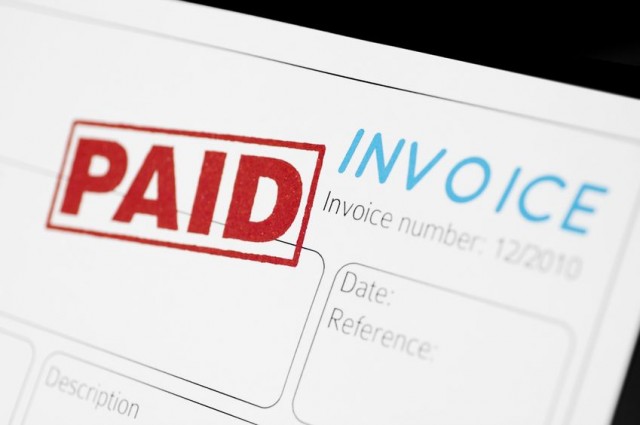Cash flow is the life-blood of any successful business. Yet so many promising businesses struggle under a cash flow squeeze if customers are slow to pay their invoices.
Chasing unpaid accounts and past due invoices can be time-consuming and costly, especially if the customer continues to avoid making payment. The result is more cash flow challenges for the business.
Rather than spend time and resources chasing unpaid invoices, business owners have several options available. They can:
- Write off the unpaid debt as a loss;
- Apply for a line of credit; or
- Enter into an invoice factoring agreement
Writing off unpaid invoices as a business loss is never an ideal situation for any struggling business. Likewise, not every business will qualify for a traditional bank loan. Besides, going into debt to cover existing cash flow problems can cause further problems with trying to keep up with monthly repayments.
By comparison, invoice factoring offers a viable alternative to traditional loans and lines of credit for businesses that need assistance bridging the gap between income and expenses.

How Does Factoring Work?
Factoring companies, or accounts receivable financing companies, provide a specific type of asset financing. Essentially, the factoring company takes over outstanding invoices or other money owed to a business.
The business receives an amount of money that is somewhere between 70 and 90 percent of the value of the outstanding invoice. From there, the factoring company worries about chasing the debtors to collect the money owed.
Factoring companies run credit checks on all customers, so business owners have the opportunity to minimize bad debts by applying credit terms to their customers appropriate to the likeliness of them paying their bills.
There are two primary types of factoring agreements available. Recourse factoring is an agreement where the business selling invoices agrees to buy them back in the event that the customer doesn’t pay by a pre-determined date.
By comparison, non-recourse factoring makes it possible to allow the factoring company to assume responsibility in the event that the customer doesn’t pay the invoice. With a non-recourse factoring agreement, the business that sold the invoice is not responsible if the customer doesn’t pay or becomes insolvent, reducing the risk of bad debt.
If you’re keen to understand how to take advantage of factoring, you can learn from Business Factors & Finance. They provide a range of educational material and online courses that make it easy to understand how and when to use factoring for your business.

Benefits of Factoring
When used correctly, invoice factoring can provide a range of benefits for any business. Some of the more notable benefits include:
- Improved cash flow: rather than waiting 60 or 90 days to receive your money and chasing unpaid invoices, the business receives cash right away.
- Streamlined receivables management: factoring companies take the burden of collecting payment on invoices, leaving you free to run your business instead of spending time and resources chasing debtors.
- No debts: selling invoices to a factoring company means not incurring any debt for the business, which means the balance sheet looks good and there are no repayments to worry about
- A reliable source of finance: ensuring a business has sufficient funds to cover expenses is crucial to survival. Factoring provides a reliable source of income that can allow a business owner to take advantage of potential discounts offered by suppliers for early payments.
- No credit check: some businesses may not qualify for a traditional bank loan or line of credit due to a lack of existing credit or an impaired credit rating. However, factoring provides access to operating capital when it’s needed without the worry of waiting for a bank loan to be approved.
- Available on an as-needed basis: businesses can enter a factoring agreement on an as needed basis to cover unexpected expenses or impending costs associated with business growth.
- Reduced risk of bad debts: there’s nothing worse for a small business than having unpaid invoices sitting on the balance sheets. Bad debts can be written off as a loss, but the negative impact of bad debts on any business’s cash flow and balance sheet can be detrimental.
Cost effective; the fees associated with factoring can often be more competitive than alternative financing solutions, such as cash advances.
Factoring isn’t a new or unusual financing solution. Rather, invoice factoring has been used by merchants for centuries to cover cash flow shortages and other expenses while still growing their businesses. Plenty of large multinational companies use factoring agreements to maintain healthy business cash flows as a viable alternative to traditional financing options.
Invoice factoring can provide an effective option for any small business owner who wants to ease cash flow concerns. The business can take advantage of accessing fast cash without ever needing to wait for approvals and finance from a traditional bank loan again.
Find a Home-Based Business to Start-Up >>> Hundreds of Business Listings.
















































